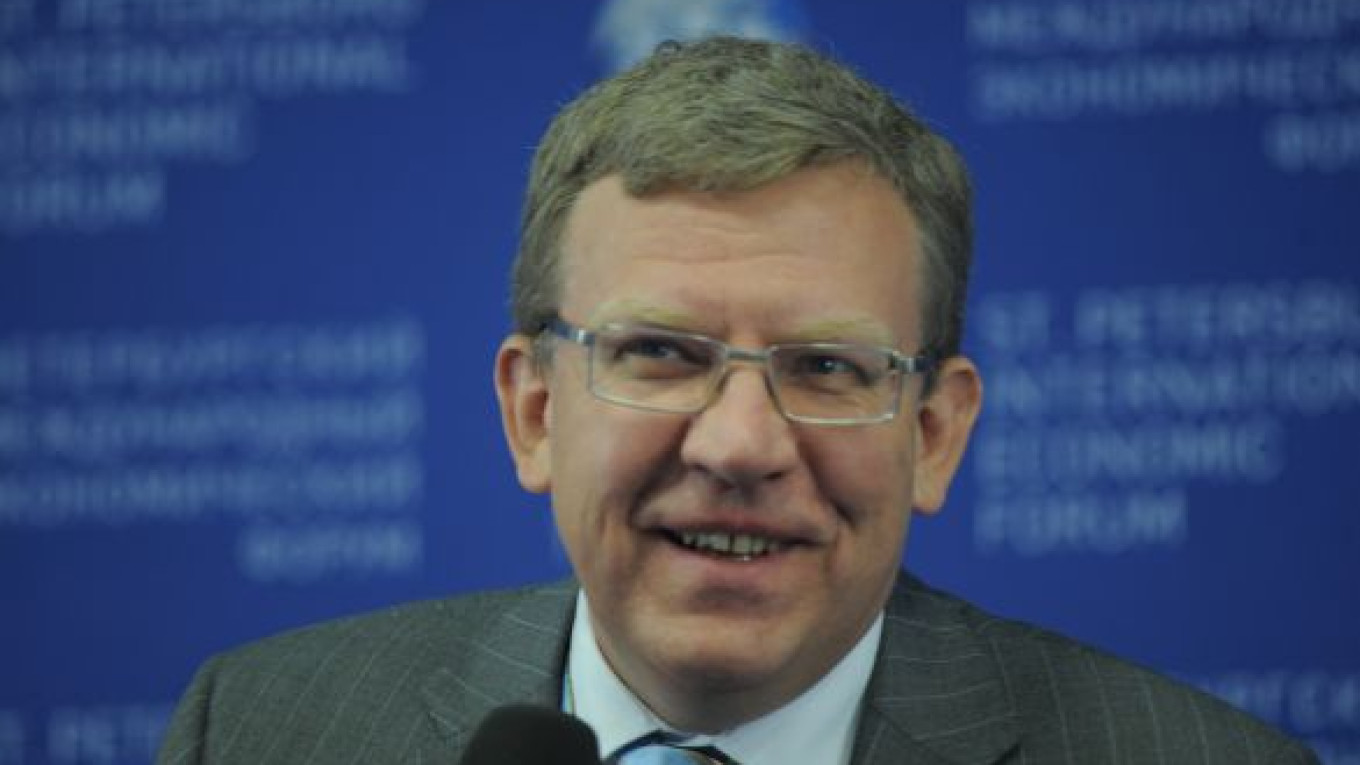ST. PETERSBURG —? Russians face higher gasoline prices and a longer slog until retirement, Finance Minister Alexei Kudrin said Friday, signaling potentially unpopular changes as the country heads towards elections.
Like many nations, Russia is suffering from a pension fund deficit, with a hole exceeding 1 trillion rubles ($32 billion).
"This will inevitably lead to the retirement age being increased. It is even difficult to debate. When we decide this — in a year, in two, in five — is not as important now as the fact that we will have to do it," Kudrin said at the St. Petersburg International Economic Forum.
The comments suggest that Russia's leaders — who face parliamentary and presidential elections in the next two years — may be faced with some unpopular decisions.
Kudrin also signaled that Russians may also have to deal with higher gasoline prices and thus inflation, proposing that excise duty on gasoline is increased by 3 rubles per liter over the next three years.
Earlier in the week, Kudrin said an excise tax on gasoline was among the possible sources of extra cash for the budget as Russia strives to reduce the deficit built up by helping the economy recover from recession.
Russia is aiming to reduce the budget deficit from 5.9 percent of gross domestic product in 2009 to zero in 2015, and having to use state money to bail out the pension fund — as Russia is doing this year — will not bring the goal any closer.
Low birth rates and rising death rates exacerbated the situation in the turbulent years following the Soviet Union's collapse. Kudrin said that while now there are 112 workers for 100 pensioners, by 2030 the two groups would be even.
"Despite the one-to-one ratio, taking into account that they will retire more slowly due to the change in the pension age, we will be able to support the pension system," he said.
The pension age is currently set at 55 years for women and 60 for men, although many people continue to work after retirement to supplement the small pensions.
Anton Drozdov, head of the Pension Fund, said higher retirement ages would boost the fund's coffers by 70 billion rubles from 2012. But funding pressures will intensify around 2020, when people who are part of the new scheme — under which companies also contribute to the pension — retire and start claiming higher pensions from the fund, he said.
A Message from The Moscow Times:
Dear readers,
We are facing unprecedented challenges. Russia's Prosecutor General's Office has designated The Moscow Times as an "undesirable" organization, criminalizing our work and putting our staff at risk of prosecution. This follows our earlier unjust labeling as a "foreign agent."
These actions are direct attempts to silence independent journalism in Russia. The authorities claim our work "discredits the decisions of the Russian leadership." We see things differently: we strive to provide accurate, unbiased reporting on Russia.
We, the journalists of The Moscow Times, refuse to be silenced. But to continue our work, we need your help.
Your support, no matter how small, makes a world of difference. If you can, please support us monthly starting from just $2. It's quick to set up, and every contribution makes a significant impact.
By supporting The Moscow Times, you're defending open, independent journalism in the face of repression. Thank you for standing with us.
Remind me later.


